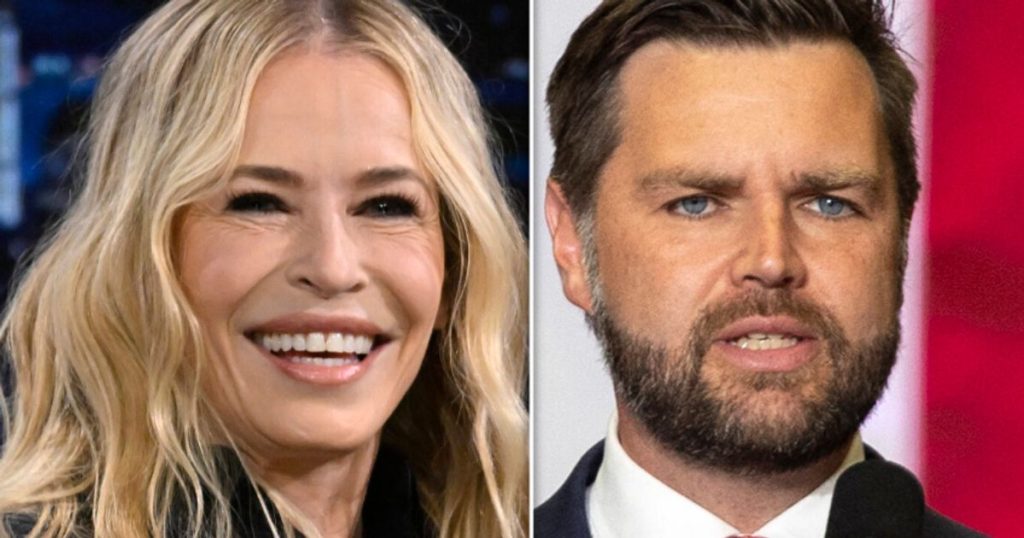Comedian and actor Chelsea Handler recently criticized GOP vice presidential candidate JD Vance for his derogatory comments about childless women, including Vice President Kamala Harris. Handler addressed Vance in a video shared on social media, calling him a “wingnut elegy” and accusing him of perpetuating systems that benefit men. She highlighted the lack of correlation between motherhood and the presidency, pointing out that no U.S. president has ever been a mother. Handler also made sarcastic remarks about Vance’s personal life, referencing a debunked claim about his alleged intimacy with a couch.
Handler’s comments drew on her own experiences as a childless woman in a society where motherhood is often equated with success and fulfillment. She expressed frustration at the double standards faced by women in politics, where men are often held to different standards when it comes to personal scandals and behavior. Handler’s remarks sought to challenge Vance’s misogynistic language and highlight the importance of women’s voices in political discourse. By engaging with Vance’s comments in a humorous and confrontational manner, Handler sought to shift the conversation away from divisive rhetoric and towards a more inclusive and respectful dialogue.
The backlash against Vance’s comments reflects a broader societal shift towards greater awareness of gender equality and respect for women’s autonomy. Handler’s pointed criticisms of Vance’s language and behavior underscore the importance of holding political candidates accountable for their statements and attitudes towards women. By speaking out against misogyny and gender discrimination in politics, Handler aligns herself with a growing movement of women who are asserting their rights and demanding representation in positions of power. Through her comedy and activism, Handler aims to challenge traditional notions of femininity and advocate for greater equality and diversity in political leadership.
Handler’s confrontational approach to addressing misogyny in politics serves as a reminder of the ongoing struggles faced by women in male-dominated fields. By calling out Vance’s comments and challenging his offensive language, Handler highlights the need for greater respect and inclusion of women in public discourse. Her criticisms of Vance’s derogatory remarks underscore the importance of empowering women to speak out against sexism and discrimination in all areas of society. Through her platform as a comedian and activist, Handler continues to advocate for gender equality and social justice, promoting a more inclusive and equitable society for all.
The ongoing debate surrounding Vance’s comments and Handler’s response reflects a broader cultural shift towards greater awareness of gender equality and representation in politics. By engaging with contentious issues related to women’s rights and empowerment, Handler brings attention to the challenges faced by women in male-dominated spheres of influence. Her efforts to challenge misogynistic attitudes and rhetoric in politics reflect a growing movement towards greater inclusivity and respect for women’s voices. Handler’s criticisms of Vance’s comments serve as a reminder of the ongoing struggles faced by women in politics and the importance of advocating for gender equality and social justice.
In conclusion, Chelsea Handler’s criticisms of JD Vance’s derogatory comments about childless women and Vice President Kamala Harris highlight the need for greater respect and inclusion of women in politics. By addressing Vance’s offensive language and challenging his misogynistic attitudes, Handler advocates for a more equitable and diverse society where women are empowered to speak out against sexism and discrimination. Through her comedy and activism, Handler continues to promote gender equality and social justice, emphasizing the importance of women’s voices in shaping political discourse and challenging traditional notions of femininity and motherhood.


